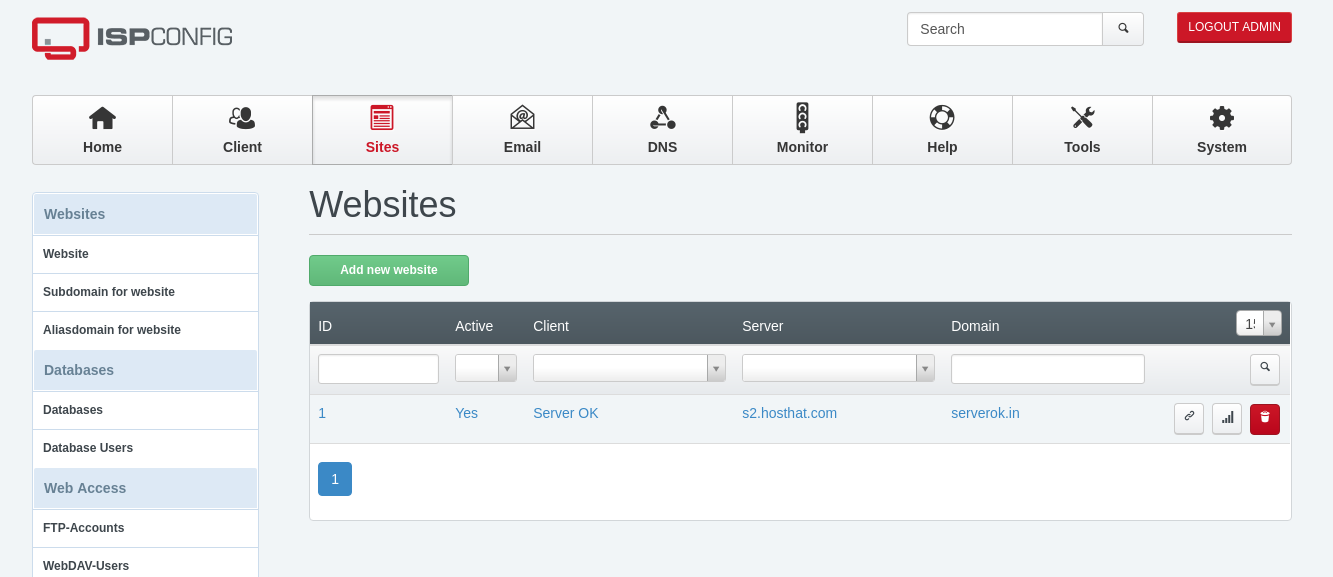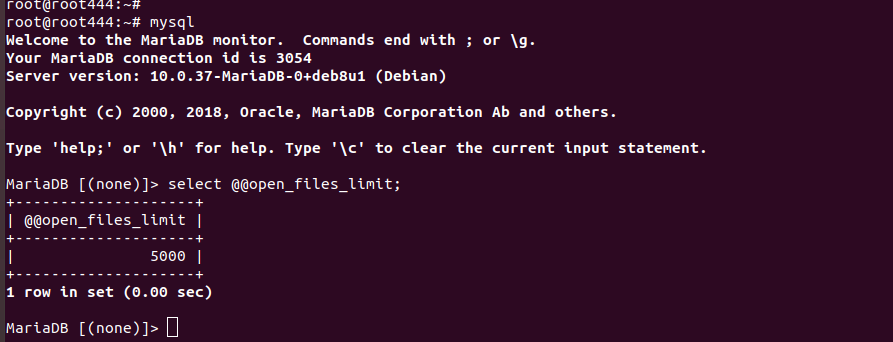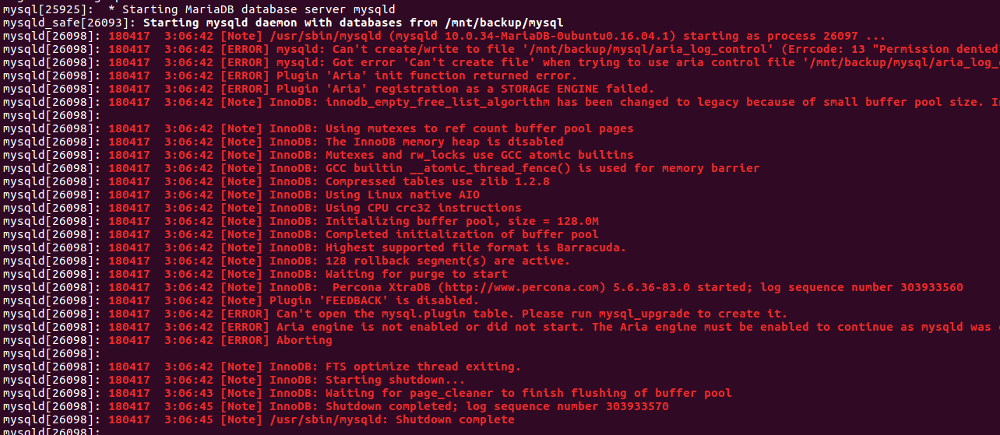Whem creating MySQL database in ISPConfig, no database get created. To debug, i disabled the cronjob. Created a database in ISPConfig control panel, run cronjob manually, it shows following error
[root@vs-sok ~]# /usr/local/ispconfig/server/server.sh PHP Warning: mysqli::mysqli(): (28000/1045): Access denied for user 'root'@'localhost' (using password: YES) in /usr/local/ispconfig/server/plugins-available/mysql_clientdb_plugin.inc.php on line 528 11.11.2019-13:45 - ERROR - Unable to connect to mysqlAccess denied for user 'root'@'localhost' (using password: YES) PHP Warning: mysqli::mysqli(): (28000/1045): Access denied for user 'root'@'localhost' (using password: YES) in /usr/local/ispconfig/server/plugins-available/mysql_clientdb_plugin.inc.php on line 184 11.11.2019-13:45 - ERROR - Unable to connect to mysqlAccess denied for user 'root'@'localhost' (using password: YES) finished. [root@vs-sok ~]# /usr/local/ispconfig/server/server.sh PHP Warning: mysqli::mysqli(): (28000/1045): Access denied for user 'root'@'localhost' (using password: YES) in /usr/local/ispconfig/server/plugins-available/mysql_clientdb_plugin.inc.php on line 472 11.11.2019-13:46 - ERROR - Unable to connect to mysql: Access denied for user 'root'@'localhost' (using password: YES) finished. [root@vs-sok ~]#
This is because ISPConfig can’t connect to MySQL server for creating new MySQL database. To fix, edit file /usr/local/ispconfig/server/lib/mysql_clientdb.conf
vi /usr/local/ispconfig/server/lib/mysql_clientdb.conf
Update MySQL password for user root on this file. The content of the file look like
Related Posts




